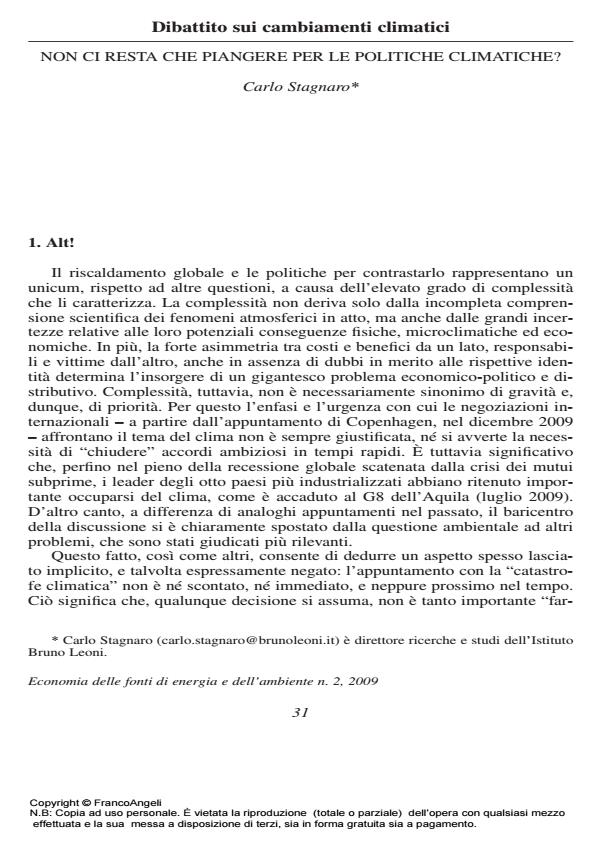Non ci resta che piangere per le politiche climatiche?
Titolo Rivista ECONOMIA DELLE FONTI DI ENERGIA E DELL’AMBIENTE
Autori/Curatori Carlo Stagnaro
Anno di pubblicazione 2010 Fascicolo 2009/2
Lingua Italiano Numero pagine 16 P. 31-46 Dimensione file 1059 KB
DOI 10.3280/EFE2009-002002
Il DOI è il codice a barre della proprietà intellettuale: per saperne di più
clicca qui
Qui sotto puoi vedere in anteprima la prima pagina di questo articolo.
Se questo articolo ti interessa, lo puoi acquistare (e scaricare in formato pdf) seguendo le facili indicazioni per acquistare il download credit. Acquista Download Credits per scaricare questo Articolo in formato PDF

FrancoAngeli è membro della Publishers International Linking Association, Inc (PILA)associazione indipendente e non profit per facilitare (attraverso i servizi tecnologici implementati da CrossRef.org) l’accesso degli studiosi ai contenuti digitali nelle pubblicazioni professionali e scientifiche
We just have to cry for climate policies? - A risk exists that the global warming debate is driven by an excessively emotional approach, which asserts the need to find a solution is more urgent than how it perhaps might be. Under this context, it is more likely that policy tools are picked, which are relatively less efficient, or that in the implementation process they are manipulated in favor of vested interests. An analysis of the available evidence suggests what follows: (a) priority should be placed upon the task of developing sound policies, rather than the need to take immediate steps towards unilateral reduction of carbon emissions; (b) emissions will grow more rapidly in the developing world; (c) in these countries, the marginal cost of abatement tends to be lower; (d) the creation of an investmentfriendly economic climate, for example through the promotion of economic freedom, may positively affect, in the long run, the reduction of carbon emissions, while having a positive impact on economic growth; (e) in the developed world, a price instrument (carbon tax) is likely to be more efficient and less distorsive than a quantity instrument (cap and trade) in order to control emissions.
Parole chiave:Climate change; carbon tax; cap and trade; economic freedom.
Jel codes:Q54, Q58, H23
Carlo Stagnaro, Non ci resta che piangere per le politiche climatiche? in "ECONOMIA DELLE FONTI DI ENERGIA E DELL’AMBIENTE" 2/2009, pp 31-46, DOI: 10.3280/EFE2009-002002